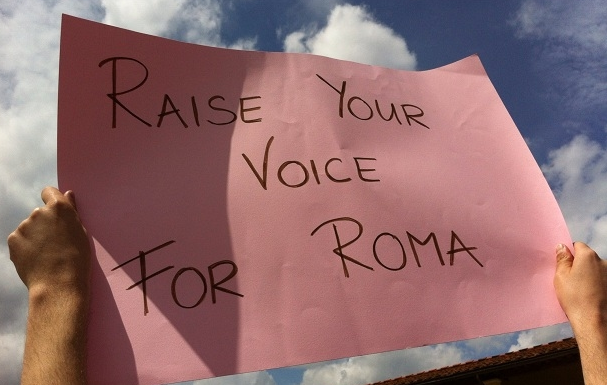Published: 30 July 2014
Country: UK
 Crimes, unauthorised campsites, children not in school and people who live away from society: these are some of the stereotypes about the Roma community that were found in the media by Article 12 in Scotland. The public’s perception of this minority is built on these stories, whose tone is often negative and full of prejudices.
Crimes, unauthorised campsites, children not in school and people who live away from society: these are some of the stereotypes about the Roma community that were found in the media by Article 12 in Scotland. The public’s perception of this minority is built on these stories, whose tone is often negative and full of prejudices.

As a part of its Young Gypsy Travellers’ Lives project, Article 12 in Scotland has recently published its annual analysis on the discrimination of the Gypsy/Traveller community in Scottish media.
Not only local journals report on this population, but also wider spectrum publications, such national newspapers. Although the number of articles related to this community in national publications is smaller than in local ones, Article 12 noticed a much more balanced approach to reporting on the Roma community when there were no local agendas.
Media has a big influence on people and it works as a platform to change minds and put an end to prejudices, particularly social media, such as blogs or social networks, where the public is more involved. Nevertheless, the report describes online media as a dangerous platform where people can spread lies and online groups perform as a tool to stir prejudice and violence, more than to remove stereotypes. Article 12 in Scotland reminds online information platforms (including journal forums and social networks) that they have a duty to monitor all offensive content within their sites. Since journalists and editors have a huge influence on the way readers perceive their environment, they also have the responsibility to ensure fair and ethical reporting. In relation to this, if the current method of reporting stories about the Roma population remains, their image among the settled community will never change.
With regards to ‘traditional’ newspapers, there was an increase in stories reporting on the Traveller community in relation to previous years’ reports. Among these articles many of them contain negative stereotyping, such as focusing on crime or discussing the TV programme My Big Fat Gypsy Wedding. This TV series has discomforted the Roma community because it caused the Gypsy stereotype to spread further, as was said by some of the speakers at the seminar A bigger, fatter, public debate: Gypsies, Travellers and Roma in the media, which was held in London last May.
Despite the many articles about crime within the Gypsy/Traveller community (over one in ten articles), the Association of Chief Police Officers states that there is not a disproportionate amount of criminal activities within this community. In summary, the tone of these articles does not encourage readers to approach the Roma population but quite the opposite. Only 7% of the analysed texts contained a positive tone and 36% a neutral tone. Most of them have been classified as negative (52%), and even some of them as discriminatory (10%) or racist (4%).
Last year, in order to change this tendency, the Equality and Human Rights Commission of Scotland drafted a guide, which was made available for the media. The guide, Gypsy Travellers in Scotland: A Resource for the Media tries to familiarise journalists with the Roma reality before reporting on them. The Roma community has played a part in shaping Scottish, British and European history. Although they are not a homogeneous group (like the rest of the population, it is a very diverse community) they have been recognised as an ‘ethnic minority’ by the Scottish Government. Like other ethnic minorities groups, it is necessary to place a capital letter at the beginning of the words ‘Gypsy’ and ‘Traveller’. Nevertheless, nearly a fifth of publications that were scrutinised for Article 12’s report do not do it, which is a worrying trend.
In spite of everything, Article 12 still thinks that fair journalism can be one of the best tools for change and can play an important role in the fight against the stigmatisation of any minority. As far as they are concerned, traditional and social media can use its power to produce a positive change on the public’s perspective through fair, neutral and ethical reporting. Besides, the report advises institutions to provide Travellers with appropriate places to live, which would reduce the number of unauthorised campsites. This would help to create a calmer environment and better relations between this minority and settled populations. It also advices journalists to stop posting inflammatory ‘debates’ on social networks and to implement a better monitoring system for online news forums, due to the high level of tension against ethnic minorities found on these websites.